ROOM: The Space magazine is one of the leading magazines on space exploration, technology and industry. At ROOM, we share a common dream – promotion of peaceful space exploration for the benefit of humankind, all while bringing you comprehensive articles on a plethora of contemporary topics. Our authors include experts and industry leaders from all over the world, which lets us bring you timely and comprehensive information about who plays sputnik in space buddies.
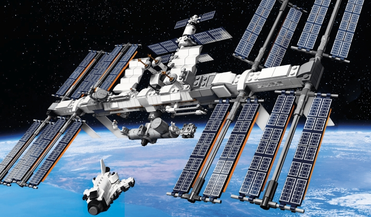 July 2020
Lego’s replica space programme
July 2020
Lego’s replica space programme
... interlocking studs and tubes, was launched in 1958 – which makes it more than 60 years old. Those who played with Lego in the 1960s and 70s will remember it as a bag of standard-sized bricks and a ... consumption and model building. It is therefore no great surprise that Lego has embarked on its own small space programme. Entering space Space is increasingly an integral part of our culture… It is therefore no great surprise that Lego has embarked ...
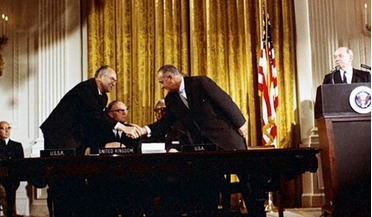 July 2019
Who owns outer space?
July 2019
Who owns outer space?
... to express, yet their answers may have far-reaching consequences: for example, who (if anyone) owns the Moon and outer space? Who has the right to make economic use and derive economic benefit from them... economist Henry George. This model is more limited, only coming into play when there is competition between companies to mine the same locality or resource on an outer space body. An auction would be held - perhaps overseen by an international ...
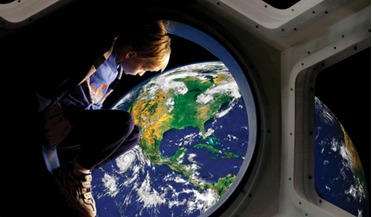 August 2016
The promise of space tourism
August 2016
The promise of space tourism
... to me and maybe you too. People will find different reasons to travel into space. To feel weightless, even for a moment, is why kids play on a swing and bounce on a trampoline while grinning from ear to ear. The...removed from immediate consciousness. The responses from people who have flown in space, and who have seen the Earth from space, substantiate one basic premise: the act of travelling in space can create profound changes in a person’s life...
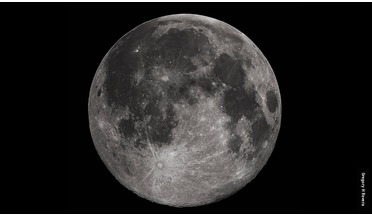 November 2021
The philosophy of space missions today
November 2021
The philosophy of space missions today
...with, in the near future. The philosophy of space mission can be divided according to its main focus - the people who carry out the space missions, the space objects that are the subject of the mission, ...objections become irrelevant, because the condition for having these objections is existence itself. A bioconservative who is not saved by the colonisation of space will not be able to voice his objections. Therefore, if we accept that humanity’s...
 August 2016
Are the days of innovation in global space over - or just beginning?
August 2016
Are the days of innovation in global space over - or just beginning?
...; has created new ideals to reach for, as well as advancing political ideology. In space, we see an important form of power at play. The power of knowledge, and the power of technology and technological advances to create this...running of satellites in Earth orbit. Indeed, the importance of satellites has increased extensively since Sputnik made its name circumnavigating Earth. Today the military, global transport networks, the global financial ...
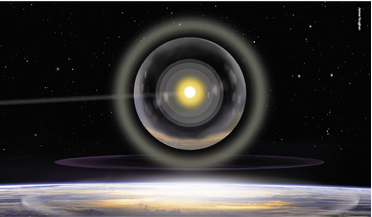 April 2021
Space wars - how they start and how to end them
April 2021
Space wars - how they start and how to end them
The world has come a long way since the first artificial satellite, Sputnik, was launched in 1957. The entire planet now depends on space for economic, military, diplomatic and civilian uses and it is hard to imagine living ... own state-change threat-detection algorithms have seen satellites enter into geosynchronous graveyard orbits and ‘play dead’, while their orbital elements actually improve with time, showing that they are still controlled...
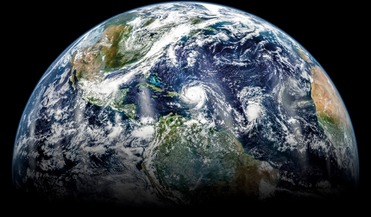 July 2020
Pandemic in space – are we ready?
July 2020
Pandemic in space – are we ready?
...clear-cut obligations and guidelines for states and space operators is essential for the long-term sustainability of space activities Immediately after the launch of Sputnik 1, over six decades ago, scientists and diplomats...of contamination. With foresight, it was recognised that the WHO’s expertise in global health could be “most useful to any outer space programme” and that it could play a role in identifying and addressing “medical or health ...
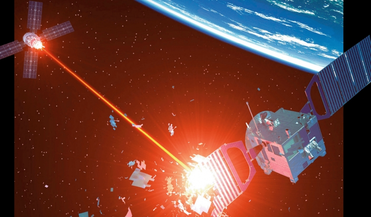 June 2022
Military space – how worried should we be?
June 2022
Military space – how worried should we be?
..., even though Sputnik used a rocket initially designed as an intercontinental ballistic missile and Explorer the A-4 derived Redstone. Ironically, it was a General, also President, Eisenhower who insisted on keeping a blue sea between ‘military’ space and ‘civilian’ space, with an all...
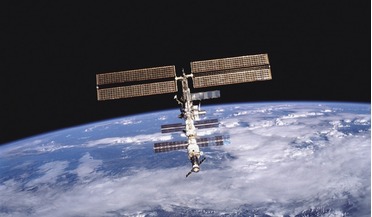 February 2020
Preserving our space heritage
February 2020
Preserving our space heritage
... is because they either re-entered the Earth’s atmosphere long ago and burned up - the fate that befell Sputnik in 1958, for instance - or because they’re still in orbit around the Earth, or sitting on other ...a satellite is still likely to need attitude control and thermal management to maintain its physical integrity in the space environment. There are also hazards ‘up there’ which exhibits in terrestrial museums do not have to endure. Radiation...